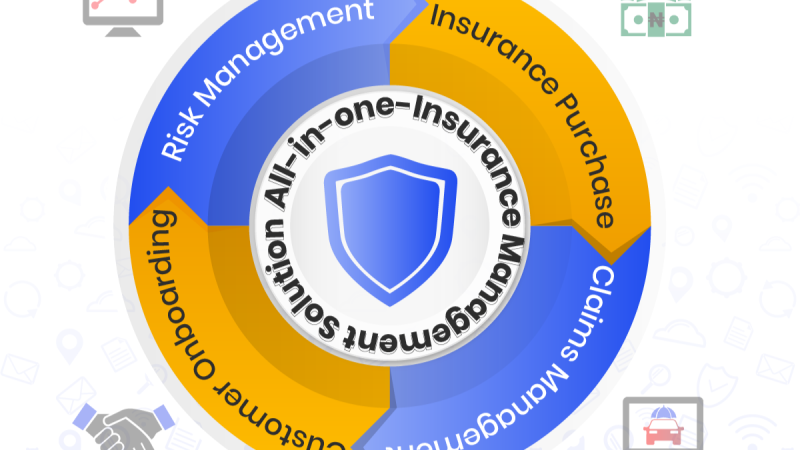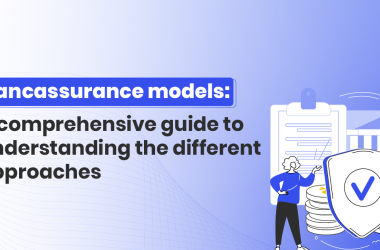The Impact of Digital Transformation on the Insurance Sector: Key Trends and Insights
In an era of rapid technological advancements, the insurance industry is undergoing a profound transformation in Nigeria, Africa, and globally. Digital transformation is reshaping how insurers operate, engage with customers, and manage risks. This article explores the pivotal trends driving this change—Artificial Intelligence (AI), Big Data, Automation, Embedded Insurance, and On-Demand Insurance—and how they are redefining the insurance landscape.
1. Artificial Intelligence (AI) in Insurance
AI is not just a buzz word, especially in the Insurance industry which is traditionally manual an dpaper based. AI is revolutionizing the insurance industry by enhancing decision-making, improving customer experiences, and optimizing operations. From chatbots handling customer inquiries to sophisticated algorithms predicting risks and automatic claims detection reducing fraud, AI is at the forefront of this transformation.
Key Applications:
- Claims Processing: AI-powered tools can rapidly assess and process claims, reducing turnaround times and minimizing human errors. For example, AXA Nigeria, uses Octamile’s AI claims Fastrack solution to process claims in minutes, enhancing customer satisfaction significantly.
- Fraud Detection: AI algorithms can analyze patterns and detect anomalies, helping insurers identify fraudulent claims more effectively.
2. Big Data Analytics
The insurance sector is leveraging Big Data to gain deeper insights into customer behavior, risk assessment, and market trends. With access to vast amounts of data, insurers can make more informed decisions, tailor products, and improve underwriting accuracy.
Key Benefits:
- Personalized Insurance Products: By analyzing customer data, insurers can offer personalized products that better meet individual needs. Progressive’s Snapshot program uses telematics data to provide usage-based insurance Progressive Snapshot. As similar example in Nigeria & Ghana is ETAP also offering rewards based on driver behavior and recently
- Risk Assessment and Pricing: Big Data enables more accurate risk profiling and dynamic pricing models. Insurers can adjust premiums based on real-time data, improving competitiveness and profitability. An interesting use case in Africa is valuation of assets. Due to rising inflation a source of underwriting loss for many Insurers has been “Under Insurance” especially vehicles with a comprehensive Insurance policy. Solutions like Octamile’s vehicle history and valuation solution helps Insurers instantly valuing vehicles with 90% accuracy
3. Automation and Process Efficiency
Automation is streamlining insurance operations, reducing costs, and enhancing service delivery. Robotic Process Automation (RPA) is being adopted to handle repetitive tasks, allowing human employees to focus on more strategic roles.
Key Implementations:
- Policy Management: Automation in policy management helps insurers manage policy changes, renewals, and cancellations more efficiently. Companies like Zurich Insurance have implemented RPA to automate administrative tasks
- Customer Onboarding: Automated onboarding processes simplify the customer journey, ensuring a seamless experience from application to policy issuance.
4. Embedded Insurance
Embedded Insurance is transforming how insurance is sold and consumed by integrating it into everyday transactions. This model allows businesses to offer insurance at critical customer touchpoints, making coverage more accessible and relevant.
Key Advantages:
- Seamless Integration: Octamile’s embedded insurance APIs enable businesses like Treepz, Shuttlers, Terminal Africa & Gokada in the mobility & Logistics sector to incorporate insurance offerings directly within their platforms, providing customers with instant access to coverage without additional steps.
- Enhanced Customer Experience: By embedding insurance within existing services, businesses can offer a more holistic and convenient experience, increasing customer loyalty and satisfaction.
Conclusion
Digital transformation is no longer optional but essential for insurers aiming to stay competitive in a rapidly evolving market. AI, Big Data, Automation, Embedded Insurance, and On-Demand Insurance are not just enhancing operational efficiency but also reshaping the customer experience and enabling the development of innovative products. Insurers that embrace these technologies will be well-positioned to thrive in the digital age.
As the industry continues to evolve, staying informed about emerging trends and adopting a proactive approach to digital transformation will be critical. The future of insurance is digital, and the time to act is now.










